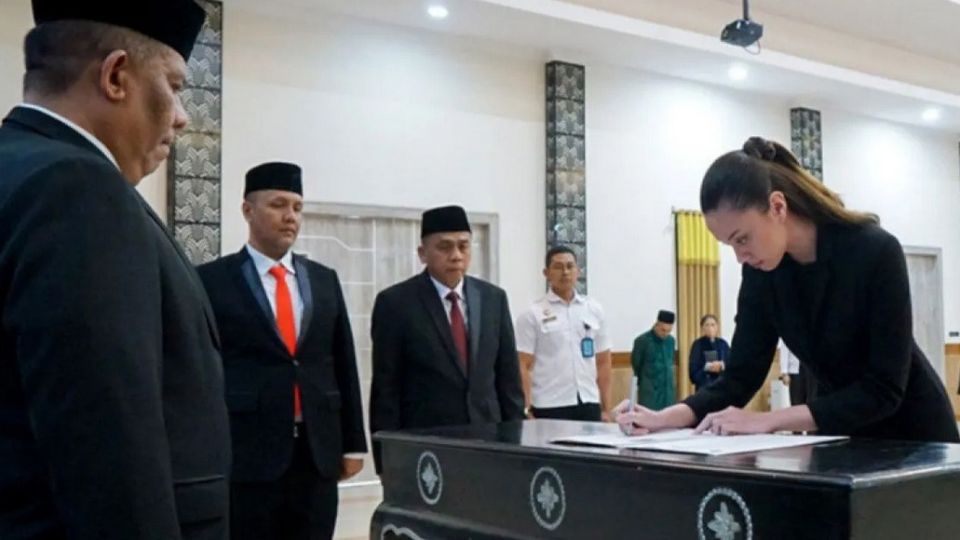May 14, 2024
JAKARTA – Once again, the Indonesian government has trotted out the prospect of changes to the country’s citizenship laws as an enticement to the diaspora community to return to Indonesia.
As an Indonesian living abroad, I heartily welcome such initiatives. The Indonesian diaspora includes many young adults who were forced to forego Indonesian citizenship because of the country’s single citizenship rule. As an Indonesian and the mother of such children, I too hope that one day they might regain their Indonesian citizenship.
But as a member of a mixed-marriage organization, PerCa Indonesia, I urge all parties to recognize the complexity and magnitude of the process entailed in offering dual citizenship. Such a paradigm shift would require new levels of commitment – and courage – from Indonesian policymakers.
Two decades ago, the mixed marriage community’s call for dual citizenship culminated in Law No. 12/2006, which redefined Indonesia’s concept of what it meant to be a citizen – at least for children until adulthood. The groundbreaking law allows minors to hold dual nationality – even though the Constitution recognizes only single citizenship – but then requires them as adults to actively choose Indonesian citizenship or automatically lose it. This temporary reprieve, called limited dual citizenship, was seen as an expedient and preferable option, especially in cases where a child born to an Indonesian mother could lose the right to be an Indonesian citizen and, therefore, residence in Indonesia.
Unfortunately, even now, more than 15 years after being enacted, Law No. 12/2006 and its limited dual citizenship concept still face complications. PerCa Indonesia’s members have encountered cases where, first, the authorities have had different interpretations or understandings of the law and, second, the resolution sometimes did not reflect the noble intent of the law.
PerCa Indonesia believes that the solution is to simplify the path to dual citizenship. This solution, which we call “Indonesian forever”, defines citizenship roughly as follows:
First, an emphasis on the principle of jus sanguinis (lineage by blood) rather than jus soli (place of birth), with equal rights before the law. So as long as the child is born to an Indonesian mother or father, the child will forever be an Indonesian citizen.
Second, the principle of active citizenship must be changed to the principle of passive citizenship, meaning that citizens retain their citizenship automatically whether they actively claim it or not.
Third, the principle of retroactivity applies, meaning that Indonesians who, for whatever reason, become foreign citizens, may become Indonesian citizens again.
These three principles are in fact quite common among member countries of the Group of 20, to which Indonesia belongs, and the Organization for Economic Cooperation and Development (OECD), which Indonesia is aspiring to join.
In Indonesia, it is not a matter of implementation (yet) but of intention. Is Indonesia serious about embracing dual citizenship?
If so, the government will then face the daunting task of synchronizing other laws and regulations that are currently linked with the principle of single citizenship. For example, apart from the Citizenship Law, regulations under the Agrarian Law (property ownership), the Investment Law, the Manpower Law, the Immigration Law, the Administration Law and the Taxation Law would all need to be reviewed and aligned to reflect dual citizenship considerations.
Some restrictions should apply to dual citizens, such as prohibition from working as state officials or civil servants, as directors of state-owned companies, for the military or police or as rectors of state universities.
So would all this be worth it?
Under Law No. 12/2006, mixed-marriage children have already been granted dual citizenship, even if only up to 18 years of age. This is a positive starting point for consideration of permanent dual citizenship as envisioned in the concept of “Forever Indonesian”. This way, Indonesia can emulate the true meaning of “Ibu Pertiwi” (Motherland) as the mother who will always embrace her children no matter how far they have ventured out into the world.
Let’s remember that the vast majority of mixed marriage children have direct and powerful connections with Indonesia. Many were born and have lived their youths in Indonesia, are bilingual, cosmopolitan and well educated, i.e. people who love Indonesia and are committed to the development and success of the country.
Presumably these are the ideal citizens for Indonesia to attract and retain as the country develops toward its Golden Indonesia 2045 vision.
Without a doubt the current Indonesian citizenship laws have the unfortunate consequence of forcing people who did not, do not and will not want to leave Indonesia to do exactly that.
On behalf of children (and their parents) who have lost Indonesian citizenship, I applaud the recent interest in and intention to accommodate dual citizenship. Without doubt, a change of this magnitude requires immense effort, commitment and perseverance from government and non-government stakeholders.
My hope is that all parties are ready to allow all Indonesians to be Indonesians forever.


